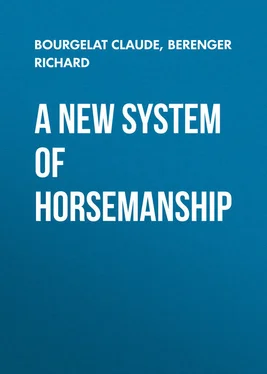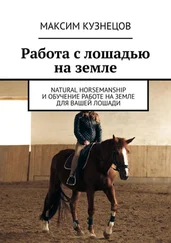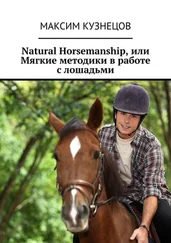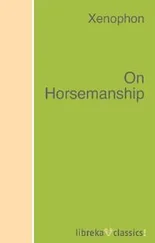Richard Berenger - A New System of Horsemanship
Здесь есть возможность читать онлайн «Richard Berenger - A New System of Horsemanship» — ознакомительный отрывок электронной книги совершенно бесплатно, а после прочтения отрывка купить полную версию. В некоторых случаях можно слушать аудио, скачать через торрент в формате fb2 и присутствует краткое содержание. Жанр: foreign_antique, foreign_prose, на английском языке. Описание произведения, (предисловие) а так же отзывы посетителей доступны на портале библиотеки ЛибКат.
- Название:A New System of Horsemanship
- Автор:
- Жанр:
- Год:неизвестен
- ISBN:нет данных
- Рейтинг книги:4 / 5. Голосов: 1
-
Избранное:Добавить в избранное
- Отзывы:
-
Ваша оценка:
- 80
- 1
- 2
- 3
- 4
- 5
A New System of Horsemanship: краткое содержание, описание и аннотация
Предлагаем к чтению аннотацию, описание, краткое содержание или предисловие (зависит от того, что написал сам автор книги «A New System of Horsemanship»). Если вы не нашли необходимую информацию о книге — напишите в комментариях, мы постараемся отыскать её.
A New System of Horsemanship — читать онлайн ознакомительный отрывок
Ниже представлен текст книги, разбитый по страницам. Система сохранения места последней прочитанной страницы, позволяет с удобством читать онлайн бесплатно книгу «A New System of Horsemanship», без необходимости каждый раз заново искать на чём Вы остановились. Поставьте закладку, и сможете в любой момент перейти на страницу, на которой закончили чтение.
Интервал:
Закладка:
A Horse may be difficult to be mounted, examine the Source of this Vice; it may be owing either to the Ignorance or the Brutality of those who have first had to do with him, or perhaps that the Saddle may have hurt him, or else to a Temper naturally bad. To whatever Cause it may be owing, remember never to beat him, for instead of curing him, you would certainly confirm him in his Vice; clap him gently when you approach him, stroke his Head and Mane, talk to him, and as you talk, clap the Seat of the Saddle; keep yourself still all the while, put your Foot only in the Stirrup to encourage your Horse, without doing any more, in order to make him familiar, and lose all Apprehension and Fear when he is going to be mounted; by degrees at last he will let you mount him, you will immediately get down and remount, and so successively for several Times together, without attempting to do any thing else, but send him back to the Stable. If it happens that then when you are upon him, he runs from the Place where you got upon him, bring him to it immediately, keep him there some Time, coax him, and send him away. – The first Lessons ought to be well weigh'd; when you undertake to bring a young Horse to Obedience, and to reclaim him from Liberty to the Subjection of the Bridle, Saddle, and the Weight of his Rider, so restrain'd, it is not surprizing if he should employ all his Strength against you in his own Defence.
The Generality of Colts are difficult to be turn'd and guided as you would have them go; we ought not however to be surprized at this their first Disobedience, it must be imputed to the Habit they acquire from their Birth, of constantly following their Dams. Indulged in this Liberty, and subjected all at once by the Bit, it is but natural they should rebel; there is no way of eradicating these first Impressions, but by Gentleness and Patience: A Horseman, who should make use of Force and Correction, and employ it all at once upon a young Horse, would discourage and make him vicious ever after. If therefore your Horse refuses to go forward, you must lead another Horse before him, the Person who rides the Colt will try from Time to Time, and insensibly, to make the Colt go a-breast with him, and afterwards get before him; if being surprized at seeing the Horse no longer, he stops or runs back, the Rider must endeavour to drive him forward, either by his Voice, or some Kind of slight Punishment, or he that rides the other Horse may give him a Stroke with the Chambriere, in order to make him go forward; if these Methods should not succeed, he will go before him again with the other Horse, by degrees (for one Lesson wont be sufficient) the Colt will grow accustom'd to it, and at last will go on of himself.
Most Horses who start, have some Defect in their Sight, which makes them fear to approach the Object. The Horseman, upon those Occasions, instead of having Recourse to Punishment, which serves only to alarm the Horse, and extinguish his Courage and Vigour, should first endeavour to lead him gently towards the Object that terrifies him, either by encouraging him with his Voice, or by closing his Legs upon him, to make him go up to it. If he wont go towards it, you may give him the Spurs, but with Discretion, and by Coaxing and Caresses push him towards it insensibly; severe Correction will never cure him of this fearful Temper, which is a Fault inherent in his Nature, nor of any Imperfections in his Sight, which is a Disorder belonging to him, but the Habit of viewing the Objects which alarm him, may in time remedy the Defects of Nature.
If notwithstanding you perceive that Sloth and Malice are added to these Faults, you must use as you find necessary both Mildness and severe Correction, and you will bestow them in proportion to the Effect they produce. For the rest, be careful never to surprize a young Horse who is shy, and apt to start, never terrify him with what he most fears, never beat him to make him come up to an Object which he dreads; accustom him by degrees to it, and have Patience; the Fear of Punishment does oftentimes more harm, and is more dreaded by him, than the very Object which first alarmed him.
There are some Horses, who are struck with such Terror at the Sight of a Stone or Wooden Bridge, and at the Sound and Echo of the hollow Part of it, that they will fling themselves headlong into the Water, without the Riders being able to restrain them: They are to be cur'd of this Apprehension by covering the Pavement of their Stall with Wooden Planks, between two or three Feet high; and the Horse standing constantly upon them, his Feet will make the same Noise as they do when he goes over a Bridge, and he will of course grow familiar to the Sound, and lose all Apprehension of it.
To accustom them likewise to the Noise of the Water running under the Bridge, lead him to a Mill, fix two Pillars directly over against the Wheels, and tie your Horse constantly for two Hours together, several Times in the Day; having done this, bring him back to the Bridge, let an old Horse, that is not afraid, go before him upon the Bridge, by degrees you will find him go over the Bridge as readily and quietly as if he had never had the least Apprehension.
For Horses that are addicted to lay down in the Water, you must provide yourself with two little Leaden Balls, tie them to a Piece of Packthread, and in the Moment that he is lying down, you must drop these into his Ears, and if he rises instantly, or forbears to lay down, draw them back; but this Method is not less sure than that of breaking a Flask fill'd with Water upon his Head, and letting the Water run into his Ears.
Fire, Smoke, the Smell of Gunpowder, and the Noise of Guns, or other Arms, naturally surprize and frighten a Horse. – There are few that will come near Fire, or pass by it without Difficulty.
There are many Occasions however, wherein it is necessary; it is therefore proper to accustom your Horse to it. In the first place, begin with your Horse by letting him see it; and for that purpose tie him between two Pillars, and hold before him, at about thirty Paces distant, a burning Wisp of Straw; this should be continued for some Days together, repeating it several times each Day. Let the Person who holds the Brand, advance towards the Horse step by step, and let him take care to advance or stop often, as he perceives the Horse is more or less frighten'd, who in a short time will be imbolden'd, and no longer afraid of the Fire: After this get up on him, carry him slowly, and, as it were, insensibly towards the Brand, the Person who holds it taking care not to stir: If your Horse comes up to it, without being frighten'd, let the Man on Foot walk on, and let the Horse follow the Fire. Lay upon the Ground some Straw about half burnt out, and he will pass over it.
With respect to the Noise of Arms and Drums, let your Horse hear them before you give him his Oats: Do this regularly every Day, for some time, and he will be so used to them as not to mind them.
A Horse is said to be entier to that Hand, to which he refuses to turn; a Hurt in his Foot, Leg, or Shoulder, may often be the Cause of his refusing to turn to that Side, where he feels any Pain; a Hurt in his Loins or Haunch, a Curb or Spavin, by hindering him to bend and rest upon his Hocks, may make him guilty of this Disobedience. Art can do little towards curing these Evils, consequently a Horse so affected will never dress well, because he never can be made supple and ready; besides, every Horse is naturally inclin'd to go to one Hand more than the other, and then he will go to that Hand on which he finds himself the weakest, because with the strongest he can turn more easily.
They may likewise refuse to turn, from some Defect in their Sight, natural or accidental. I have tried a Method to remedy this Vice, which has answer'd very well; I have put a Lunette upon the ailing Eye, and as his Fault was owing to his Eye, the Horse began by degrees to go to that Hand to which before he had refused to turn: After this I made two little Holes in the Lunette; I enlarged them afterwards, and the Eye of the Horse being thus insensibly accustom'd to receive the Light, and he to turn to that Hand, he no longer disobeyed; I exercised him in this Manner from time to time, in order to confirm him in his Obedience. – I have said, that there is no Horse who is not by Nature inclin'd to go better to one Hand than the other; their inclination generally carries them to the Left rather than to the Right. Some People impute this Preference to the Manner in which the Foal lies in its Dam's Belly, and pretend that even then it is entirely bent and turn'd to the Left: Others insist that Horses lay down generally upon their Right-side, and from thence contract a Habit to turn their Heads and Necks to the Left: But not to regard these groundless Notions, it is easier and more natural to believe, that this Habit is owing to Use, and the Manner in which they are treated by those who first have had the Care of them.
Читать дальшеИнтервал:
Закладка:
Похожие книги на «A New System of Horsemanship»
Представляем Вашему вниманию похожие книги на «A New System of Horsemanship» списком для выбора. Мы отобрали схожую по названию и смыслу литературу в надежде предоставить читателям больше вариантов отыскать новые, интересные, ещё непрочитанные произведения.
Обсуждение, отзывы о книге «A New System of Horsemanship» и просто собственные мнения читателей. Оставьте ваши комментарии, напишите, что Вы думаете о произведении, его смысле или главных героях. Укажите что конкретно понравилось, а что нет, и почему Вы так считаете.












